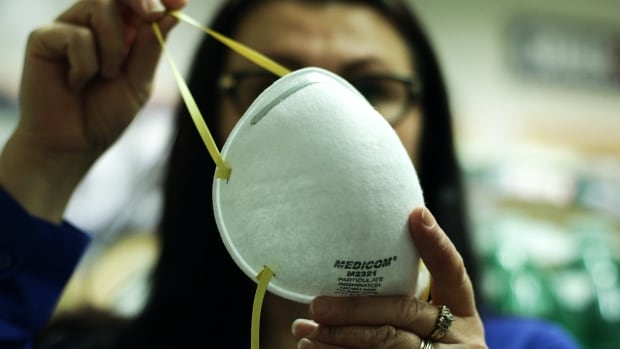
Your baggy mask isn't going to cut it against Omicron, epidemiologist warns
CBC
After almost two years of living with a pandemic, you would think we'd all be mask experts by now.
But the COVID-19 landscape is changing rapidly, and the things we thought would protect us are suddenly in need of a serious rethink — including, and perhaps especially, masks.
Those cloth and blue surgical masks so many of us have been wearing? They're unlikely to cut it against Omicron, says an expert.
We should all be upping our mask game immediately, warns epidemiology professor Dr. David Fisman of Toronto's Dalla Lana School of Public Health.
"To be honest, we should have been doing this for a while now," Fisman said in an interview with Shift NB, noting "we've known for over a year" that COVID-19 spreads through aerosol.
"And that's really important because that means people get infected by breathing in these tiny particles."
Fisman used the mental image of COVID spreading like cigarette smoke.
If you think about how you would cope with being exposed to that, you might think about opening windows, using HEPA air filters and "protecting yourself with a well-fitting respirator to filter those tiny particles out," he said.
The key being "well-fitting."
Fisman said the commonly worn surgical masks and cloth masks are problematic because they're often "very baggy" around the sides.
What people should be wearing, he said, are sturdier, better-fitting masks that block and filter out infectious particles.
In other words, N95 masks.
"N95 masks, KN95 masks, CN95 masks ... those are respirators that are really fitted to your face," Fisman said.
"So they really are acting to filter out any particles in the air that you breathe. And we know they're very, very good at doing that."













